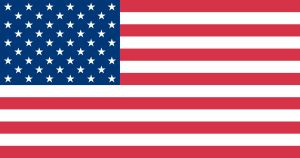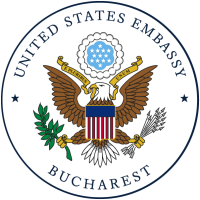Accommodation
First response to emergency situations is in its principle the emergency response and intervention provided by Romania to newly arrived refugees from Ukraine.
The Directorate for Emergency Situations (DSU), as part of the Home Office, was in charge of operations at this stage. DSU website:
https://web.facebook.com/departamenturgente/?_rdc=1&_rdr
- The EU has mobilized significant funding to help Romania and other EU member states meet the needs of refugees in the near and long term.
- Member States require these funds to cover their costs and have the obligation to report on their use.
- In Romania, UNHCR has created a model structure for refugee coordination, which consists of eight sectoral working groups. A total of 23 international and national partners are part of the Refugee Response Plan for Romania.
The newly implemented UNICEF program is BLUE DOTS.
https://bluedothub.org/country-hubs/romania-hub/
Blue Dots can provide you with immediate professional help and assistance, access to up-to-date, accurate and reliable information, advice, service orientation and legal support, referrals to health facilities, education, psychosocial support services and more. Most Blue dots also have spaces for children and families, spaces for breastfeeding and childcare, and safe places to relax. All services and support offered by service providers at Blue Dots are free of charge.
Cities with such services in Romania: Siret / Suceava, Brasov, Bucharest, Sighet Maramures, Tulcea, Vaslui.
“Un Acoperiș” is a solution for locating refugees arriving in Romania in need of immediate assistance.
The platform registers requests for assistance from refugees or organizations that offer them support in identifying verified places of accommodation in the territory to reduce the risks that lie in wait for the vulnerable.
Temporary or “transit shelters” in Bucharest, where you can stay for a short time:
Carusel – https://carusel.org/contact/
address: Calea Șerban Vodă 164-168, Bucharest
contact: +40757 586 514
Edmond Nicolau Technical college – address: Bulevardul Dimitrie Pompeiu 3
Shelters provide food and everything necessary to cover basic needs. Volunteers and shelter staff can help with most questions a person may have.
Private housing can support refugees’ independence and facilitate their integration into host communities, but it also creates challenges. In the beginning, there were unofficial initiatives aimed at connecting interested hosts and refugees. International organizations and NGOs welcomed the generosity of local citizens, but warned of the dangers of unregulated programs, especially for women and children. In response, officials have stepped in to create official programs to register hosts and match them with refugees, such as Un Acoperiș in Romania, or to check housing offers.
Temporary protection is an exceptional measure to provide immediate and temporary protection in the event of a mass influx or imminent mass influx of displaced persons from non-EU countries who cannot return to their country of origin.
The Temporary Protection Directive of 2001 provides the EU with a tool to deal with such situations. Due to the scale of the expected arrival of refugees, the European Commission has identified a clear risk that the asylum systems of EU countries will not be able to process applications within the set deadlines.
This will have a negative impact on the effectiveness of national asylum processes and will have a negative impact on the rights of people seeking international protection. Following a call from home ministers on 2 March 2022, the Commission quickly proposed to activate the Temporary Protection Directive.
On March 4, 2022, the Council unanimously adopted a Decision on granting those fleeing the war in Ukraine the right to temporary protection.
…and what does this mean in terms of accommodation?
Temporary Protection Directive: Article 13 (1) Member States shall ensure that persons benefiting from temporary protection have access to adequate accommodation or, if necessary, receive the means to obtain accommodation.
What were the main conclusions and recommendations made in 2022:
■ The lack of stable, long-term housing has a multifaceted impact on refugees’ ability to exercise their other rights, including education, employment and social protection.
■ People with special needs, including older people, people with disabilities and people with pre-existing conditions, need affordable and adapted housing located in areas with access to basic services, including health care.
The main thing to know:
Persons who receive foreign citizens or stateless persons in special cases from the zone of armed conflict in Ukraine receive benefits to cover food and living expenses from the budget of the county emergency inspectorates/Bucharest-Ilfov emergency inspectorates in the amount of 20 lei/day / person staying for meals and 50 lei/day/person staying for accommodation. The settlement mechanism is established by a decision of the Government.
DECISION No. 336 dated 11.03.2022 – examples of statements that the owner of the residential area must fill out.
(https://legislatie.just.ro/Public/DetaliiDocument/251954)
Why don’t they give me (a Ukrainian) money for the 50/20 program?
The European Union program is intended to provide money to European Union citizens/institutions that help Ukrainians.
This means:
- Money cannot be directly transferred to a native of Ukraine.
- Institutions/citizens of Romania have the right to reimbursement of the cost of meals in the amount of 20 lei/day/person 50 lei – for accommodation.
- From the point of view of the choice of words, where there is `cazare’, this may mean that this amount also includes utilities.
I was charged an advance / guarantee payment for 50/20 – why?
In Romania, people usually require a guarantee from people renting a house. The guarantee should mean 1-3 months of rent. There are delays in government 50/20 payments.
You should know that this is a negotiation process. Your right is to refuse to pay such a payment and find another housing option. If you decide to pay an advance – you must document this.
There should be no noise from 1:00 PM to 5:00 PM in the afternoon and from 10:00 PM to 8:00 AM.
If there are any complaints from neighbors, the police can fine noisy people.
The fine could increase to 2,000-3,000 lei if a person organizes a party with loud music.
Who do I contact if there are problems with utilities (pipes/gas/fire/electricity)?
This is the owner’s problem in Romania.
If we are talking about rent, then you should ask the owner to pay and take care of this aspect.
If the owner does not take care of this, then you should call the emergency numbers.
- Documents of the owner
- Personal documents
- Documents for the premises.
As mentioned earlier, prepayment is common in Romania.
Some fines are also prescribed in the lease agreement. This is about 0.5%/day.
In Romania, rental contracts do not include utilities. The one who rents the accommodation has to pay for them. There is no clear estimate of how much higher the price of utility services is in certain areas/premises, but you can ask the landlord before renting a house.


This project is funded in part by a grant from the U.S. Department of State. The opinions, findings, and conclusions presented in this page are those of the author(s) and do not necessarily reflect those of the U.S. Department of State.

